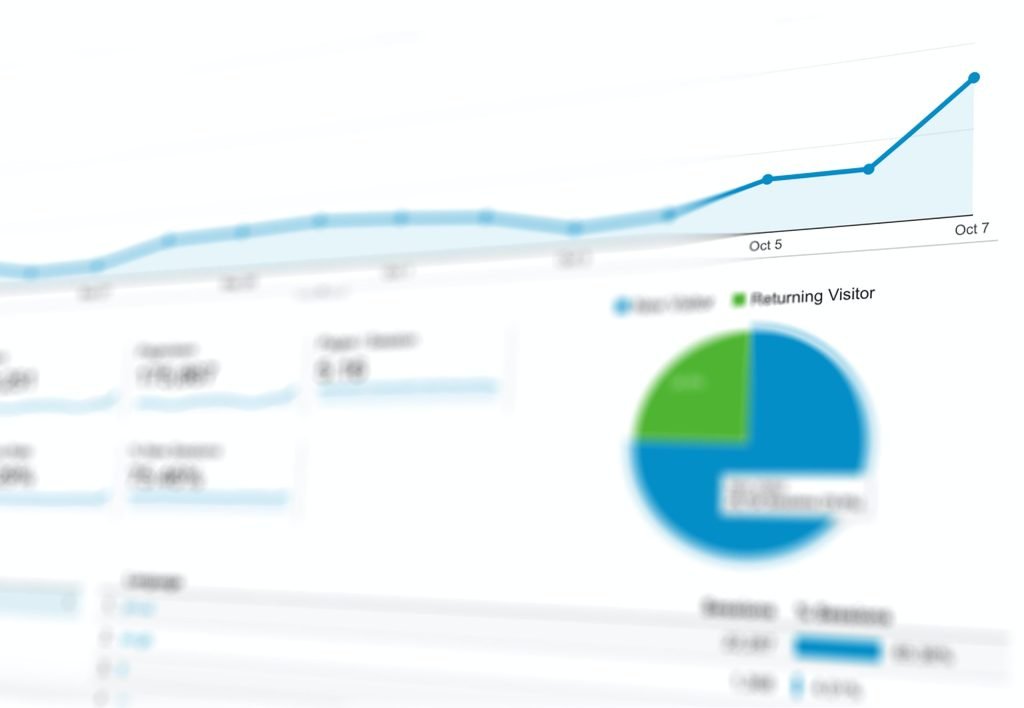68% of all online experiences begin with a search engine query, according to a study by Ahrefs. This study stated that the top 0.21% of websites listed in the first results on search engines achieve over 1000 visits on a regular basis. With this in mind, it’s paramount that your website is optimised, in order to reach an organic search audience.
Search engine optimisation (SEO) is a major strategy Total Digital Marketing experts use to ensure their websites are seen in the first few results of a search engine. Combined with website conversion changes aimed at your target audience, it can be effective at improving sales or leads without relying on ads.
That said, there are a many components on a website that contribute to SEO, and it can be hard for beginners to know where to start. In this blog, we’ve made things simple, and laid out 6 steps that you can complete quickly.
If you have any questions, book a consultation with one of our experts online. Alongside our Total Digital Marketing packages, we also offer a one-time, full-spectrum SEO service that ensures your website is following best practices. Click one of the links below to get started.
1 – Find Relevant Keywords to Include on Your Website
One of the first steps in search engine optimisation is to find keywords relevant to your business and your audience. Search engines like Google pick up on these keywords when they scan your website and uses it in their algorithms to recommend your page. When users search for a keyword relevant to your business, and you don’t mention it on your website, you are much less likely to appear on their results page.
Google’s keyword planner is a useful free tool to find good-quality keywords. Ideally, your keywords should have a high search volume, with not too much competition from other businesses similar to yours. With your new keywords, carry out some website conversion changes of the on-page content of your website, inserting keywords where it’s natural to do so.
2 – Remove Duplicate Content and Pages
Google has made their stance on content they consider to be “spam-like” very clear, and attempts to penalise it where they find it. Their SpamBrain algorithm is capable of detecting duplicate or similar content across your website, as well as other websites. Copying content from other websites is especially frowned upon. Should this be detected by a search engine algorithm, the original content will be prioritised, and the copied content can be penalised.
What does this mean for you? If you’ve copied some paragraphs across multiple pages of your website, or used content from another website, this could be harming your SEO rankings. Therefore, you should ensure each page has unique content. In addition, unique pages have much better chances of ranking high on search engines and increasing website conversions.
3 – Make Your Content More Readable
Search engines also scan page text to determine the quality of their content. They analyse factors such as sentence length, passive verbs, and readability to determine good quality. Pages that follow good grammar practices are more likely to be prioritised by search engine algorithms. Pages with multiple spelling errors, walls of text, and confusing layouts are less likely to be ranked high.
Not to mention, users prefer readable content and tend to stay on well-structured websites for longer, therefore increasing the chances of a successful conversion. This is why our Total Digital Marketing package focuses on all aspects of a website. If you focus too much on one area of your website and neglect it in other areas, that could do more harm than good.
4 – Insert Alt Text in Your Website Images
Image alt text is a lesser known but valuable method of optimising your website. These once acted as placeholders for images while they loaded, now their primary purpose is to describe images for visually impaired people. In general, search engines will prioritise inclusive pages with alt text on their images.
Alt tags are also a great opportunity to include one or two keywords, as long as it reads naturally. We recommend keeping the length of your images’ alt text to 90 characters each, and to be specific and succinct. Remember, you are describing an image for someone who may not be able to see it – too much or too little detail could frustrate them.
5 – Write Title and Description Tags
These are also known as metadata, and appear when the corresponding page is listed in a search engine. As with alt text, search engines prefer listing pages that have complete metadata than those without. In our experience, the majority of businesses who approach us for SEO have not written metadata for their pages.
A page’s title and description should be relevant to the page’s content, include keywords where it is natural, and not be too long or too short. Alongside keywords, the metadata is a good opportunity to convey your sales points to visitors.
Remember that this information is shown to users on a search engine listing page. It’s your pitch, asking users to click your website out of all the others there. Therefore, your metadata should entice visitors to click on your website and not drive them away with spam-like content.
6 – Use Headings on Your Website
After the metadata, headings are one of the first things search engines look for when scanning your website. It helps them understand the content of a page, and can contribute towards making your content readable.
Headings are great for breaking up blocks of text, and introducing topics or subjects to attract the attention of users. Don’t forget to put your most important keywords in headings!
How InSynch Can Help
By optimising these 6 areas of your website, you’re giving it the best chance at ranking on search engines. With that said, it’s important to use keywords in your SEO strategy in moderation. Inserting keywords too much in one area, or using them without context can be flagged as spam-like behaviour, which is often penalised by search engines. If you use keywords that are not relevant or not true to your business, (for example, “free UK delivery” when you don’t offer it) this can even infuriate visitors to your website.
Many times we’ve seen businesses do more harm than good, by spamming keywords or by neglecting essential areas of their websites. Our SEO Wales based specialists have learned over the years to strike a natural balance when implementing these strategies, and they’re always on hand to help. Consider booking a FREE, 30-minute 1-2-1 with one of them to see where your strategy stands.





